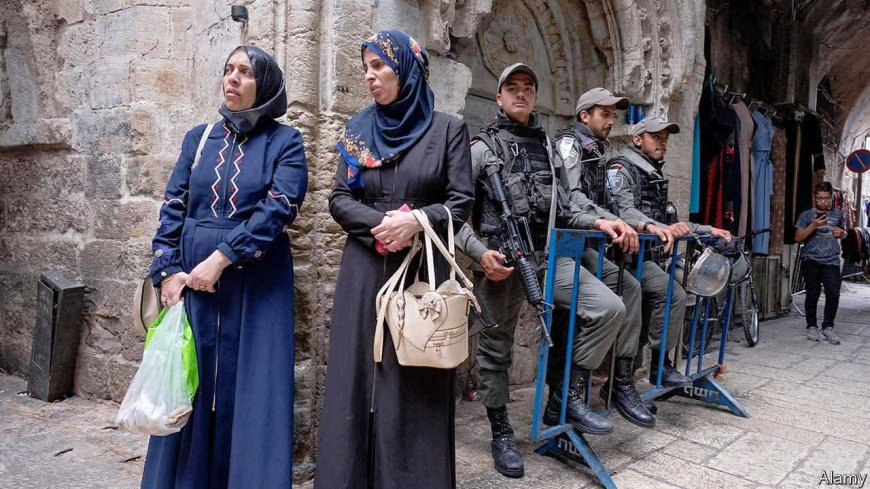Social Schisms in Israeli Society: Arab Perception of Judicial Reforms as an Intragroup Dispute
Social Schisms in Israeli Society: Arab Perception of Judicial Reforms as an Intragroup Dispute

By: H. Zaïm-Bashi
The protests against the Zionist regime have been ongoing for several weeks, but the active participation of the Arab community in these demonstrations has been notably absent, as the organizers of the protests have made concerted efforts to avoid potential sources of disagreement. The complex response from the Arab community can be attributed to their lack of significant benefits from Israel's so-called micro-democracy thus far. Israel’s judicial system has failed to protect Arabs from various forms of mistreatment, including systematic neglect, police misconduct, budget discrimination, land seizures, construction fines, house demolitions, and the Jewish Nation-State Act. However, the urgent issues affecting the Arab public have not been addressed in these protests, and opposition leaders have made a strategic mistake by failing to convince the Arabs that halting Netanyahu’s judicial reforms would be advantageous for them.
If the Arabs were to join the opposition in these protests, the involvement of thousands of Arab individuals in the streets could amplify and strengthen the protests, potentially influencing future elections. However, opposition leaders have merely stated that they will repeal the anti-democratic laws once they regain power. Nevertheless, they overlook the fact that without the participation of Arabs, who have the potential to determine the allocation of 20 Knesset seats, they have no chance of winning elections or forming a coalition. It is evident that without presenting a vision that promises a better future for the Arab community, it is doubtful that they will be motivated to participate in voting centers during the next parliamentary elections.
Therefore, the behavior of Arab community in recent weeks indicates that they are primarily responding to their most immediate and pressing needs, rather than being concerned with broader changes within the political landscape. Consequently, various Arab groups, including women, politicians, and grieving mothers, have organized rallies to protest the government's inadequate and ineffective handling of the insecurity pervasive in Arab districts.
It is worth noting that the number of deaths in Arab regions has increased compared to the previous year, with 133 people killed since the beginning of this year. In contrast, the right-wing Minister of Internal Security, Itamar Ben-Gvir, has not only failed to offer a solution to this issue but has also proposed diverting funds from the security of Arab districts to increase the budget for Yeshiva school students. Furthermore, an 84 percent majority of Arab citizens believe that the violent events of May 2021 will recur, indicating significant social schisms in Israeli society that needs to be addressed from various perspectives.
At present, two million Arabs residing in the 1948 occupied territories have not actively participated in the protests over Netanyahu’s controversial judicial reforms. Meanwhile, various segments of the Jewish community, including physicians, soldiers, businessmen, technology companies, lawyers, and students, have expressed their apprehensions about the implications of these reforms in various manners. In contrast, the primary concern within the Arab community revolves around the lack of security, the rising number of murders, and the Zionist government's apathy to addressing these security issues. This situation highlights not only the lack of homogeneity within Israeli society but also the significant gap that exists between its different components.
The Arab community perceives the conflicts surrounding the judicial reform bill as an "intragroup dispute among Jews," which holds significance from a political sociology perspective. It underscores the absence of strong bonds between citizens and highlights how any friction between Arabs and Jews can lead to significant and irreparable divisions. In a report, Israel Hume asserts that the indifference of Arab citizens stems from their continuous alienation and detachment from government decisions and its institutions. For instance, their low participation in Knesset elections suggests that they do not perceive themselves as belonging to the Israeli society, and they deem the Israeli leadership, whether it is Naftali Bennett, Lapid's or Netanyahu's, as mere occupiers. This situation has the potential to evolve into a legitimate and equitable civil struggle for equality and rights against the Zionist government.
Consequently, the judicial reform bill clearly demonstrates the divergent concerns of the Arab community and the Jewish population in political, social, and security matters, highlighting the lack of social cohesion within Israeli society. It is important to note that Israeli society currently faces challenges such as a diminishing sense of internal security, rising living costs, and an escalating confrontation between the secular and the Haredi, which has also infiltrated the military structure. Despite the ongoing protests involving several thousand individuals and the threats from reserve forces to refuse service if the judicial reform bill is approved, it is evident that Netanyahu's radical cabinet is unwilling to abandon the proposed changes to the judiciary. Presently, the regime perceives internal challenges as a greater risk than external threats, and addressing these challenges requires significant time and resources.













































